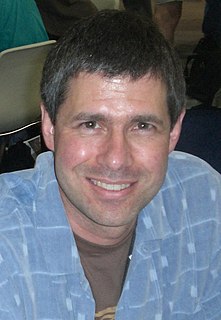A Quote by Confucius
The Path is not far from man. When men try to pursue a course, which is far from the common indications of consciousness, this course cannot be considered The Path.
Related Quotes
You cannot help another who will not help him or herself. In the end, all souls must walk their path - and the reason they are walking a particular path may not be clear to us... or even to them at the level of ordinary human consciousness. Do what you can to help others, of course. Show love and caring whenever and wherever you can. But do not get caught up in someone else's "story" to the point where you start writing it.
In every system of theology, therefore, there is a chapter De libero arbitrio. This is a question which every theologian finds in his path, and which he must dispose of; and on the manner in which it is determined depends his theology, and of course his religion, so far as his theology is to him a truth and reality
The Tathagatha... is the originator of the path unarisen before, the producer of the path unproduced before, the declarer of the path undeclared before. He is the knower of the path, the discoverer of the path, the one skilled in the path. And his disciplines now dwell following that path and become possessed of it afterwards.
A path is only a path, and there is no affront, to oneself or to others, in dropping it if that is what your heart tells you . . . Look at every path closely and deliberately. Try it as many times as you think necessary. Then ask yourself alone, one question . . . Does this path have a heart? If it does, the path is good; if it doesn't it is of no use.
The path of success in business is invariably the path of common-sense. Nothwithstanding all that is said about "lucky hits," the best kind of success in every man's life is not that which comes by accident. The only "good time coming" we are justified in hoping for is that which we are capable of making for ourselves.










































